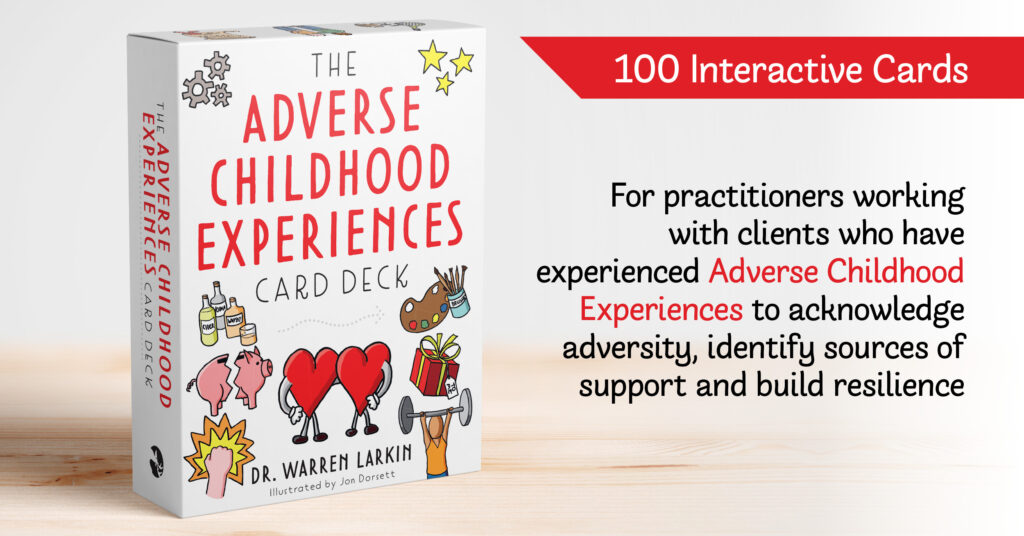
Review written by Kate Cairns.
This resource is both deeply knowledgeable and accessibly presented. It enables anyone working with people in relation to adversity in their childhood to gain all the benefits of ‘the common third’ of social pedagogy, creating a situation in which connected relationship and conversation can reach meaningful depth through working together on a common focus of attention and interest.
The detailed instructions set out the research behind the assertions made, and at the same time, if thoroughly read and understood, enable the practitioner to avoid many of the pitfalls in this sort of work. It enables and encourages a gentle and progressive approach, so that practitioners are encouraged to work at the pace of their service user, and to take active steps to keep each session safe and respectful.
The card deck moves seamlessly from setting out the realities of the impact of childhood adversity to recognising the resilience factors that have been in the past, are now, or could in the future be available to support recovery. Setting out all the packs in front of the people working together from the beginning means that the essential hopefulness that arises from working through these issues from childhood is literally ‘on the table’ throughout the shared work, even if not actually worked with in this particular session. The possibility of recovery remains in sight even as people work through the implications of their life experience.
Finally, the card deck provides space to look to the future with hopes, dreams and plans, enabling the service user to appreciate the resilience that has carried them through to here, and to gain some sense of where that might take them as their journey continues. With cards that can be written on in the session this provides a shift from what has happened to us to what we can do now, and who we can be for the future. And if practitioners have carefully followed the guidance on the use of the resource, it is to be hoped that by this stage of the process they will have very clear the recognition implicit in the previous sentence that there is no us and them in trauma, that whether we are service user or practitioner we are part of a shared human experience of trauma and recovery.
The resource is beautifully presented. The illustrations will be of enormous benefit in work with service users who may struggle with literacy, or with language skills. And the whole deck of cards, despite the wealth of information and activity it provides, is compact enough to fit in a sizeable pocket or any rucksack, handbag or briefcase.
Any working tool can, of course, be misused and enable the practitioner to disconnect from the person they are working with rather than creating a therapeutic space of sharing discovery and holding the pain of those discoveries. But this card deck has been as thoroughly insured against such misuse as it can be, and is therefore a really valuable and exceptional tool for practitioners undertaking such work.
The Adverse Childhood Experiences Card Deck is available to order now from www.jkp.com.